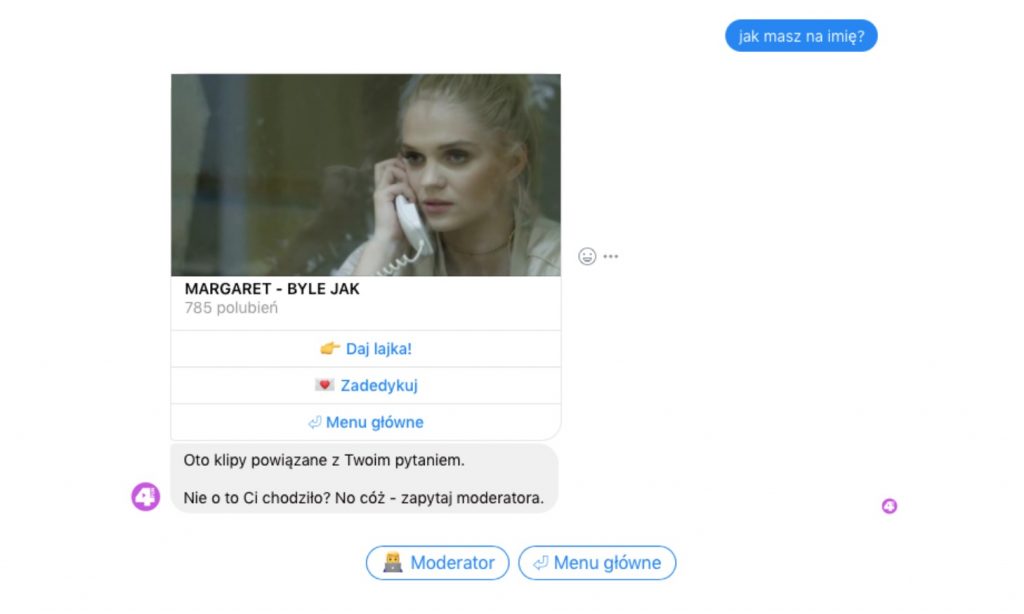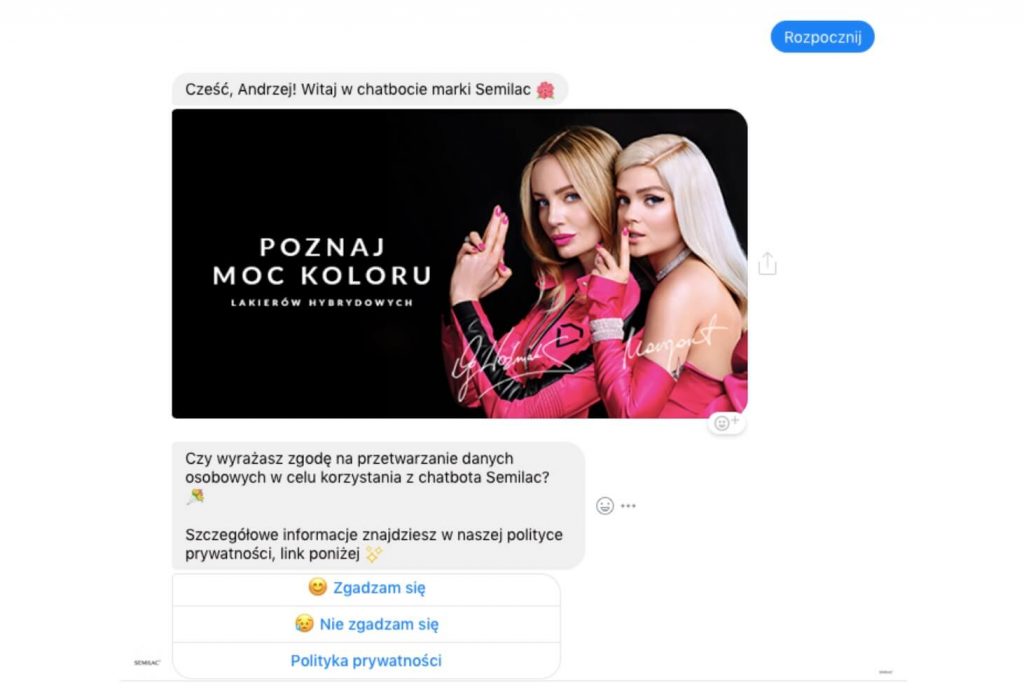Four chatbot questions you need to be ready for

Whenever we release a chatbot, we get our hearts pounding, because we want it to perform as best as possible. We want it to meet the client’s objectives and respond to the recipients’ needs. When it comes to the former, we focus on the development phase, engaging our clients and educating them on the solution’s potential. With users it’s a bit different. We usually receive positive feedback. To a large extent, it’s thanks to a well-designed tool. Indeed, people like chatbots, but sometimes they just do not notice them and cannot understand what happens when they use them unknowingly. So questions arise and you need to have the answers prepared.
The examples I’ve brought are a few that you’re likely to come across, no matter how great a bot you’ve actually build. In-between the “questions,” you’ll find a handful of quotes, which I’ve decided to highlight to give you a better idea of what I’m writing about.
1. “Are you a robot?”
It’s the height of all questions that comes up most often. You can obviously evade the question with a remark at the start of the conversation, but still, for some reason, the question pops up again and again.
Alternatively, you may come across options like:
Are you a bot?
Are you a chatbot?
Are you real?
Those most curious users might think we’re fooling them. Of course, they can ask and not know. Particularly, if you fail to inform them that it’s a chatbot that is in charge of the initial interaction. Then, the above questions are justified. So don’t be tempted to answer “yes, I’m {name},” because that’s just not fair. You need to be prepared for the fact that people won’t understand the point at the very beginning. That’s why it’s sometimes worth to write a sentence like: “answers are given automatically” and suggest contacting a moderator.
Why do you keep writing to me?
Rather than playing tricks, be prepared to give a short but comprehensive answer on the topic, of course truthfully. This matters, as it happens that the user continues and when informed that they talk to a chatbot,
they toss the underlying question: “What’s your name?” And what do you do then? You reply, using the brand language.

2. “How does it work?”
Chatbots remain a new thing. For the majority, your bot might be the very first solution of its kind that they’ve ever engaged with. Based on our experience, talking to a bot means the future for most users. A new user needs your support, so if you guide them properly, giving them tips on how to navigate the tool, they are unlikely to stray.
It gets worse, if you come across inquisitive and impatient users. Then there’s not much help and it’s worth not to get too serious about it.

Obviously, that’s just an example. You’ll find users to be impatient. Keep this in mind. With FUNBOT, we’ve assumed that since we cannot answer various messages, we’ll say something funny at least, so not to end up with a dull “ask the moderator.” And we’ve prepared over a dozen funny messages for various situations, even those less pleasant.
To mitigate risk, be prepared for onboarding. This introductory sequence explains to users the features, what commands they should use, what happens to their data, etc.



There will also be users who will still ask this question. Even if you draw up the best sequence of actions. This can shift users from interest into outrage and airing their grievances. Be ready for this.

Note that every word/phrase the user types in is feedback for you. I’d suggest drafting a standard reply with the usual commands and “steps to try.” It should help.
Based on GDPR, I request immediate deletion of all my data.
3. “How are you?”
It’s one of the most common questions that your chatbot is sure to receive, and it doesn’t require a particular answer. It is up to you what answer will be provided. You can unleash your creativity. Alternatively, decide the main theme of your chatbot and always refer to it. After all, you set ground rules at the beginning, and with such a response, you imply sticking to them.

4. Sorry Dolores, I have a question, bye-bye
Chatbot users often type anything. Among such words, phrases, questions, answers, etc. lies the most exciting part, i.e. current events.
More often than you think, users will ask for information, events, etc.
Don’t try to sanitize the song “Sorry Dolores.”
The bad news is that you cannot possibly prepare for all the words thrown your way, because you’re not able to predict the future (yet;))
How to deal with such questions? Don’t disregard them, if that’s possible. Redirect them to a moderator as I’ve mentioned above. Don’t treat this as a fix, though. Chances are that something “out of scope” might end up on the list of most common questions/phrases soon and you will have to answer them.
Best to be on the safe side
I’ve introduced you to some of the most common “random” questions your chatbot will come across.
Once you’re about to implement your tool, don’t forget to answer all of them. Be ready for all possible scenarios to avoid nasty surprises. This way, you’ll not only ensure a better reception of your chatbot, but also silence at least some of the inquisitive-impatient users. Ultimately, the aim is to have one message that sums up your work.
You’re a cool bot
Contact with us
You are one step away from separating yourself from the communication community in your organization
You can contact us and we will prepare a dedicated offer for you.